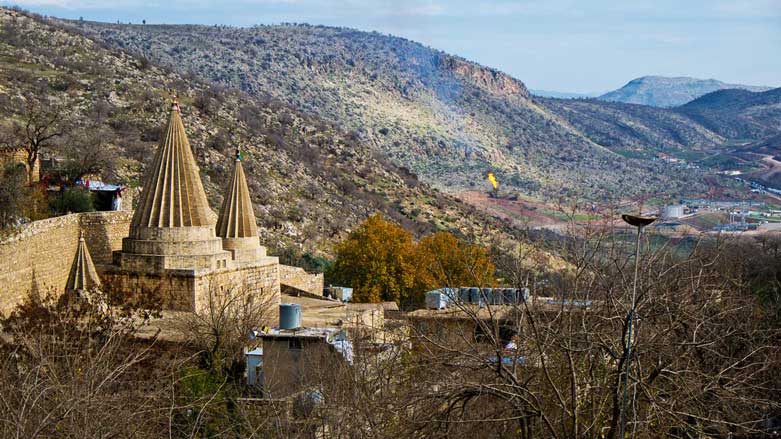Iraq's Yezidi minority chooses new leader

ERBIL (Kurdistan 24) – Six months after the death of its former leader, the Yezidi (Ezidi) religious minority living in Iraq and the Kurdistan Region chose his son to head their community.
“From the total of six candidates to take the post of the community Mir [prince], the Beg family, after six months of discussion, choose Hazim Mir Tahseen Beg, son of the late Tahseen Beg, to follow in his father’s footsteps,” said Hakar Hazim, grandson of the late Beg, to local media.
The elder Beg passed away at the age of 86 on Jan. 28 in the German city of Hanover after a lengthy battle with illness. His body was repatriated to the Kurdistan Region on Feb. 4.
Hakar also said, “Preparations are being made to formally announce him locally as the next community Mir on Saturday and then later, on the regional level, at an official ceremony.”
The ruling authority among the Ezidi community consists of one Mir and a few additional religious authorities known as the holy council.
There are about one million Ezidis worldwide, with almost half of them living in Iraq and the autonomous Kurdistan Region.
The emergence of the Islamic State and its violent assault on Sinjar (Shingal) in 2014 led to the displacement of hundreds of thousands of Ezidis. Most of them fled to the Kurdistan Region, while others resettled in neighboring countries in the region or Western states.
Others were not as lucky and remained stranded in the war zone, where they experienced atrocities and mass executions at the hands of the extremist group for years. Militants subjected women and girls to sexual slavery, kidnapped children, forced religious conversions, executed scores of men, and abused, sold, and trafficked women across areas they controlled in Iraq and Syria.
So far, over 70 mass graves which contain the remains of Ezidis have been excavated along with untold numbers of individual graves.
Kurdish and Ezidi Peshmerga forces, with the support of the US-led coalition, liberated Shingal from the Islamic State in November 2015. However, the town remains virtually vacant with little to no essential services available.
Shingal, an area disputed between Erbil and Baghdad, is currently under the control of Iraqi forces and Shia militias. These forces, plus a limited number of Peshmerga and other Kurdish fighters, are present in Shingal and its outskirts with reports of tensions between them over who will control the strategic town that lies near the Syrian border.
Editing by John J. Catherine
